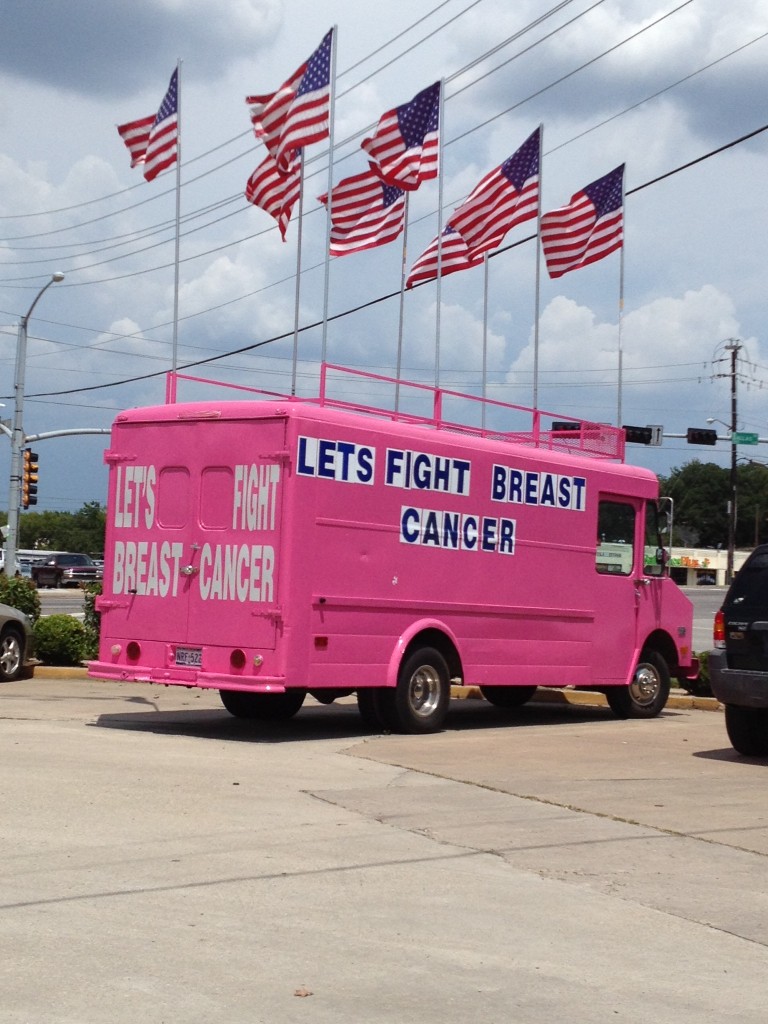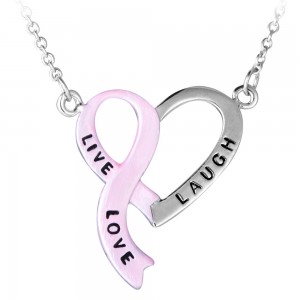In 2010, PinkRibbon.org did a “quick poll” to ask “whether commercialization of the pink ribbon adds to the cause.” They reported that 71 percent of respondents said “YES” – pink ribbon commercialization adds value. Well, there we have it! But is it true? As I wrote in the new introduction to Pink Ribbon Blues,
Breast cancer is indeed one of the most popular and profitable social causes of our time. The pink ribbon not only signifies a good and moral cause but also functions as a proxy for awareness and support. Countless promotions and publicity materials are carefully crafted to capture the hearts, minds, and wallets of eager, well-meaning consumers as imperative language echoes across the pink cultural landscape: hope, fight, win, celebrate, give – now, today, forever. The formula morphs into any number of fun-filled activities from pub crawls and fashion shows to the now commonplace runs and walks “for the cure.” While these actions offer symbolic support and raise money, they sometimes do little to help the diagnosed, promote real awareness, or impact the epidemic at large.
Public attention to breast cancer and the pink ribbon have grown over the past thirty years entwined with a medical system at once the hope and bane of the disease, situated within communities of advocacy and support that help as much as hinder, and popularized to the degree that pink consumption has become more of a trendy lifestyle choice than a rallying call for social change.
Hidden beneath the highly publicized pink ribbon celebration, the push-pull of breast cancer advocacy gave way to those with the largest megaphones, political influence, and marketing potential. As pink ribbon promotions increasingly exploited the cause for public relations purposes and to keep revenues and profit streams flowing, tenacious groups continued to work on the margins to affect the epidemic and support the diagnosed in meaningful and healthful ways.
A persistent reticence persists amid the halo of sound bites, survivorship mantras, product placements, and inattention to strategies and actions that may be more useful. These individuals and organizations go beyond fundraising and self-promotion to consider issues of bioethics, evidence-based medicine, health communication, social justice, conflicts of interest, neglected areas of research, and the limits of consumption-based advocacy. Though they diverge in the problems they tackle and the methods they use, these groups share a critical stance that fosters new thinking about breast cancer and how to address it.
In recent years members of the public have joined their voices to a chorus of serious and uncomfortable questions about breast cancer:
• Are we any closer to knowing what causes breast cancer, how to prevent it, how to keep it from coming back, and how to keep people from dying from it?
• Why are the“slash, burn, and poison” approaches to treatment still the norm?
• Are pink ribbon products outpacing efforts to provide meaningful support to the diagnosed and to influence the epidemic?
• Where does the money go, and who/what does it help?
Not long ago, outside of trusted circles, such questions would have been uttered in hushed tones. Many, including those treated for breast cancer, felt guilty for doubting a cause that was commonly accepted as overwhelmingly good. As the inner workings of pink culture and industry become more visible, largely through the misconduct of breast cancer charities and profit-driven industries, growing numbers are calling for transparency, accountability, and alternatives.
This year for breast cancer awareness month, let’s get behind those calling for change. Let’s move beyond the pink pendulum of fear mongering and feel-good, consumption.
Let’s look at the messaging for what it is.
Simple. Emotional. Symbolic. Advertising.
—
Breast cancer exists.
Be afraid.
All women are at risk.
Have hope.
Show courage.
Cop a feel.
Get a mammogram.
 —
—
Have a biopsy.
Think Pink.
Shoot Pink.
—
Cheer Pink.

—
Jeer Pink.
Fight Pink.
Win Pink.
Walk Pink.
Drive Pink.
Eat Pink.
Drink Pink.
Porn Pink.
Pee Pink.
Shop Pink.
Spritz Pink.
Debit Pink.

—
























